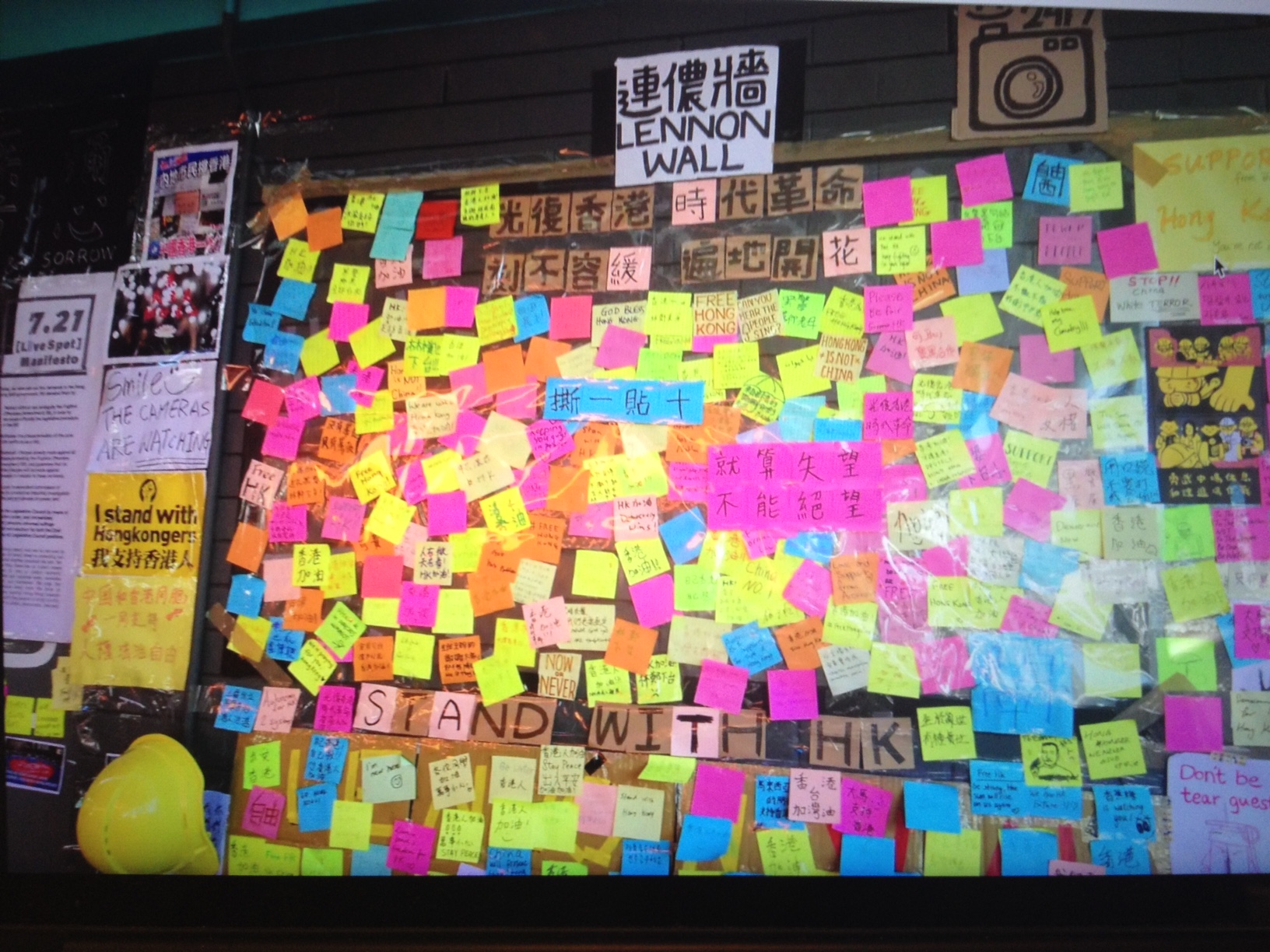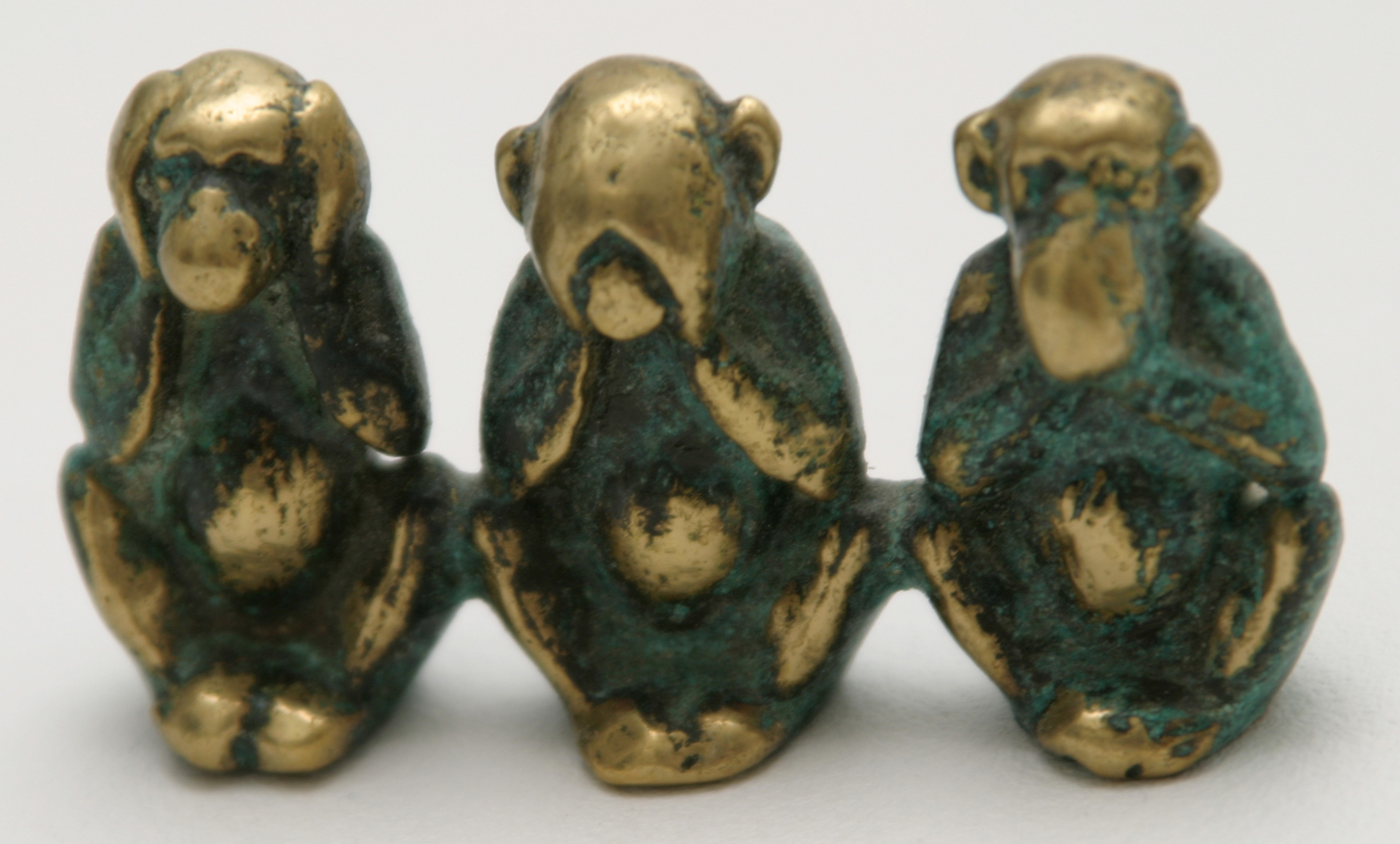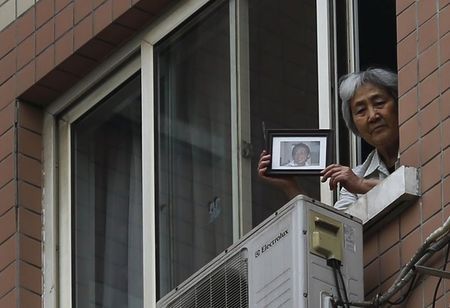Update at August 28 – the affronts to human dignity, scholarship, free speech, trade fairness and personal expression now seem to come on a daily basis. China under Mr. Xi is really carving a new international image, and it is neither “peaceful rise” nor “responsible stakeholder in the community of nations.”
You’ve read some of the Hong Kong stories, in the media and below, and the disruptions and violence and threats coming from Chinese students in Australia, New Zealand, Canada and the US when confronted with others speaking their minds. You’ve read about the billionaires, activists, lawyers and missionaries who have been disappeared in the mainland. As described in the Guardian, “China feels emboldened to place literally anyone under arbitrary and secret detention, regardless of citizenship. It is now long overdue for the world to stand up.” Family members of those the CCP wants, for whatever purposes, are at significant risk, both inside China and outside. I had some fears for my wife and son when they were in China a few weeks ago. I am unsure of my own potential for detention when I return to China. In July, the Swedish Supreme Court ruled against extradition to China of a sought-after former official, based on threat of human rights violations if he were to be returned.
These are all on top of the old stories, from the last ten years or more, of American businessmen being kidnapped in China over real or imagined disputes with Chinese businesses.
The government has long pressured western businesses to conform to CCP political thought, at the risk of losing access to the Chinese market. You remember the demands that hotels and airlines stop referring to Taiwan as a country. Then luxury brands like Versace and Coach faced the same demands, and folded immediately. Now, we have the government demanding resignation of a Hong Kong airline CEO – and getting it – over participation by Cathay Pacific employees in the Hong Kong protests. Cathay Pacific is Hong Kong’s best known local business in international markets. You can expect more pressure from the government over actions of foreign businesses, and you can expect more compliance. The government has said it will enforce a “social credit score” on foreign companies in China. Expect the blacklisting to be used when a companies employees or related entities fail to conform – not to government, but to CCP – requirements. This is despicable behavior by the government, and potentially dangerous to companies and their employees.
About a week ago, in Shenzhen, the government seized a Hong Konger who works for the British consulate in Hong Kong, thus confirming the worst fears of Hong Kongers about the extradition treaty that was the original proximate cause for the protests. Simon Cheng was returning to Hong Kong when he apparently was seized on the train late at night.
In the last couple of months, a Hong Kong 2014 umbrella protest leader, Nathan Law, has been singled out by Chinese student groups at Yale, and targeted with death threats. From ChinaFile on the messages sent to Nathan Law – “I will wait for you at school and you have no escape. Gun shooting will start—American style.”
Let there be no mistake – there is no peaceful rise, CCP expects to dominate international relations as well as business and markets, free speech and rights of assembly are under attack throughout the world, and capitalism is no friend to democracy when profits are at stake. We tend to ignore the Americans, Canadians, Australians being held in China under any form of false charges, to be used as warnings or bargaining chips. More stories are here and warnings to Americans from the US State Department are here. The 2017 book The Peoples Republic of the Disappeared documents some of the stories of Chinese and foreigners held for no good reason.
There seems no good outcome in the current Hong Kong protests. About the best the world can expect is an updated version of the rallying cry from the War of Texas Independence – Remember Hong Kong. May it be remembered as a rallying cry for free speech and a free press and free assembly and rule of law in Australia, and New Zealand, and Greece, and all of Africa, and South America, and southeast Asia.
The old post from August 1 –
You remember the bandits in Treasure of the Sierra Madre – the bandit horde, pretending to be Federales, descending on Humphrey Bogart and fellow prospectors. “Badges? We ain’t got no badges. We don’t need no badges. I don’t have to show you no stinking badges.” The famous lines were uttered by Gold Hat, head of the bandits, when Fred C. Dobbs (Bogart) asked for their badges. Hong Kong was the soft power model, the badge of Chinese “peaceful rise.” Mainland students and Confucius Institutes were supposed to be the badge of Chinese soft power in the world. But no more, as we see in Hong Kong, in Australian and New Zealand universities, and indeed, universities throughout the world.
I kept thinking of that scene as I watched Hong Kongers resist the violence of the banditos, this time in the form of white-shirted thugs from Triad gangs, and the local police. And then, watching mainland Chinese students attack Hong Kong sympathizers at Queenland University in Australia and Auckland University in New Zealand.
Watch the videos from Hong Kong –
Hong Kong police use violence on protesters, not on thugs
In Australia and New Zealand …
In Australia, a Chinese diplomat applauded patriotic behavior from mainland students in disrupting a peaceful protest at University of Queensland. As reported, the attack was coordinated, quite possibly by the local CSSA (Chinese Students and Scholars Association). You can hear the beginning of the Chinese national anthem playing in the background of the Queensland attack. Watch the video at twitter.
The New York Times reports– The Chinese nationalists disrupting pro-Hong Kong democracy rallies at the University of Queensland arrived 300 strong, with a speaker to blast China’s national anthem. They deferred to a leader in a pink shirt. And their tactics included violence.
Threats to Australian students via social media have continued, including death threats. Similar violence took place last week at the University of Auckland in New Zealand.
Bill Bishop at Sinocism suggests that expulsion might be beneficial to PRC students who can’t abide exercise of free speech – In the case of PRC students (expulsion) could be quite beneficial, as there are pressures from within the PRC student community, and its CCP minders, to be aggressive in the face of any perceived slights, and if you are not then you run the risk of being seen as insufficiently loyal and patriotic.
Western universities have though that mainland Chinese students will see freedom at work, and have their lives transformed. For some that is true. But now, some mainland Chinese are out to transform their hosts. The Confucius Institutes were supposed to be the vanguard of Chinese soft power in the world. Now, they are suspected – in at least some cases, legitimately – of being a conduit for United Front activities.
In 2016, Xi Jinping issued what now seem to be orders to Chinese students abroad to serve their country, and the Chinese Ministry of Education issued a directive calling for a “contact network” connecting “the motherland, embassies and consulates, overseas student groups, and the broad number of students abroad” and ensuring that they will “always follow the Party.”
In Canada and the US …
You remember the death threats earlier this year to the Tibetan-Canadian student elected as student union president at the University of Toronto University of Toronto. She now has a safety plan with the university police, letting them know where she is, hour by hour. You remember the uproar at McMaster University in Canada when a Uighur activist was scheduled to speak. Mainland Chinese students sought advice from the Chinese consulate about how to proceed in their protests. You remember the large protests in 2017 at the University of California at San Diego. Mainland students reportedly sought advice from the Chinese Consulate in Los Angeles before condemning the university for naming as commencement speaker the Dalai Lama. There are many such stories, including demands from the Chinese government that Uighur students return to China immediately, using their parents as potential hostages.
Hong Kong as the new model of Chinese power …
The “peaceful rise” touted by Deng Xiaoping, and the soft power projection from the Confucius Institutes worldwide is no more. In Tibet, in Xinjiang, on the mainland in prisons where human rights lawyers and activists rot, in Canada, now in Hong Kong, and Australia, and New Zealand, the gloves have come off on soft power. In Hong Kong, the protests have not yet turned deadly. But Christy Leung, Hong Kong student at Queensland, made the point –
“People in Hong Kong are risking their lives. The threats we faced last week are nothing compared to them. We have to stand up. With them.”
For Hong Kongers, it is more than a movie. They are risking their lives. They all know about June 4, even if mainland students do not.
For western students, and teachers, and universities generally, lives are not likely at risk. But the very concept of the university – let us say, seeking truth from facts, and speaking truth to power- is at risk. The soft power glove is revealing the clenched fist beneath.







Whoops! Just slipped right past me! …
Berkeley’s $220M Mistake Exposed in Massive Deal With China
U.C. Berkeley repeatedly neglected to disclose its deal with China to the U.S. government.
Yuichiro Kakutani
U.C. Berkeley has failed to disclose to the U.S. government massive Chinese state funding for a highly sensitive $240 million joint tech venture in China that has been running for the last eight years.
The Californian university has not registered with the U.S. government that it received huge financial support from the city of Shenzhen for a tech project inside China, which also included partnerships with Chinese companies that have since been sanctioned by the U.S. or accused of complicity in human rights abuses.
The university has failed to declare a $220 million investment from the municipal government of Shenzhen to build a research campus in China. A Berkeley spokesperson told The Daily Beast that the university had yet to declare the investment—announced in 2018—because the campus is still under construction. However, a former Department of Education official who used to help manage the department’s foreign gifts and contracts disclosure program said that investment agreements must be disclosed within six months of signing, not when they are fully executed.
Berkeley admitted that it had also failed to disclose to the U.S. government a $19 million contract in 2016 with Tsinghua University, which is controlled by the Chinese government’s Ministry of Education.
The project’s Chinese backers promised lavish funding, state-of-the-art equipment, and smart Ph.D. students for Berkeley academics researching national security-sensitive technologies, according to contract documents exclusively obtained by The Daily Beast. After the project got underway, Berkeley researchers granted Chinese officials private tours of their cutting-edge U.S. semiconductor facilities and gave “priority commercialization rights” for intellectual properties (IP) they produced to Chinese government-backed funds.
A Berkeley spokesman said that Berkeley only pursued fundamental research through TBSI, meaning that all research projects were eventually publicly published and accessible to all; it did not conduct any proprietary research that exclusively benefited a Chinese entity.
Still, Berkeley’s ties to the Chinese government and sanctioned Chinese companies are sure to raise eyebrows in Washington, where U.S. policymakers are increasingly concerned about the outflow of U.S. technology to China, especially those with military applications.
Under the radar
The project is called the Tsinghua-Berkeley Shenzhen Institute (TBSI), a joint research initiative backed by Berkeley and Tsinghua University, a top science school often called “China’s MIT.” The institute’s website shows that dozens of Chinese companies, including Huawei and others sanctioned by the U.S. government, also supported the institute as industrial advisers.
Through TBSI, Berkeley built an unusually close partnership with the Chinese government. Berkeley’s then-vice-chancellor, Patrick Schlesinger, said in 2015 that the “active participation of the Shenzhen municipal government” is an “unusual feature” of TBSI that sets it apart from other U.S. universities, according to meeting minutes obtained by The Daily Beast.
And yet, Berkeley never disclosed a single cent of the financial support it received from Chinese sources to the federal government for TBSI, possibly not complying with a U.S. disclosure law that requires universities to report large donations from foreign sources.
“If the facts are as Berkeley’s documents seem to assert, this is exactly what universities must report,” Dan Currell, a former deputy under secretary at the Department of Education—who has also worked on policy related to foreign influence in U.S. universities—told The Daily Beast. He later added that “the school isn’t complying with a clearly applicable federal statute.”
Memorandum of Agreement between China and UC Berkeley.
Photo Illustration by Luis G. Rendon/The Daily Beast
To this day, TBSI remains one of the most fully realized examples of U.S.-China research collaboration. In the 2021 fiscal year, the institute hosted 586 students from across the world and pumped out more than 130 science and engineering articles. According to its website, at least 20 Berkeley academics participated in TBSI, working alongside dozens of Chinese and international colleagues. At its peak, the institute hosted 18 laboratories located within three research centers, each focused on a research area relevant to national security: data science and IT; environmental science and new energy production; and public health and precision medicine.
Since the early days of the institute, the Chinese government has occupied three out of 11 seats on the governing board, according to a 2015 Berkeley document. Shenzhen’s then-mayor, Xu Qin, attended the 2014 signing ceremony that launched the institute. Tsinghua University President Chen Jining, another attendee of the signing ceremony, explicitly positioned TBSI as a “university-government-industry partnership.” TBSI also has a Party committee, which in 2018 held a seminar to study a speech by Xi Jinping.
While both Berkeley and Tsinghua contributed faculties to TBSI, the Shenzhen government was responsible for the lion’s share of the program’s funding, promising to provide the “necessary financial support” for the institute, according to 2014 contracting documents obtained by The Daily Beast. In the documents, the government said it would cover a wide range of initial expenses, including “costs of equipment, settlement allowances for newly recruited [principal investigators], as well as the cost of all day-to-day operations (ie. salaries of staff, research subsidies, and student scholarships, etc.)”
As part of the promised financial support, the Shenzhen municipal government first promised in 2014 to pitch in $52 million to support the “initial phase of work” for TBSI, according to a 2015 Berkeley document. More than half of the funding was to finance the purchase of new equipment in China “in consultation with Berkeley faculty… effectively adding facilities and equipment to Berkeley’s research capacity.”
In 2018, the Shenzhen government drastically scaled up their monetary support for the project, agreeing to spend at least $220 million to build a massive research campus in Shenzhen with nearly 1.7 million square feet of classroom space and cutting-edge research facilities. Tsinghua University also chipped in $19 million to fund TBSI.
Berkeley has repeatedly failed to disclose any of the above donations to the Department of Education. According to Currell, U.S. law requires all annual foreign donations exceeding $250,000 to be reported to the department, which in turn publicizes the donations to the general public.
A Berkeley spokesman acknowledged that it failed to report to the U.S. government the $19 million contract with Tsinghua University, but said the rules at the time were less clear.
“Like many universities across the country, UC Berkeley did not have a reporting process in place… in 2016, thus the initial sponsored research agreement was not reported. In 2018, due to national security concerns with China and countries of interest, the Department of Education’s reporting process was recertified and all universities were required to start reporting,” he said.
The $19 million—which was spread over five years from 2016—was thus never reported.
He said Berkeley also failed to report a renewal of the TBSI agreement in January 2022, an omission that he blamed on “an issue in the query pulling the data.” The spokesman said Berkeley corrected the error on Feb. 14, 2023, five days after The Daily Beast first reached out for comment for this story.
On the $220-million investment from the Chinese municipal government, the spokesman initially said: “UC Berkeley does not have any ownership of property at Tsinghua, therefore, is not required to report investments made in, or for, the Tsinghua University campus.” He later admitted that “the provision of a facility and/or equipment could qualify as an in-kind contribution and thus require disclosure.”
Still, Berkeley has not declared the foreign investment because the campus is still under construction, according to the spokesman.
However, according to a 2019 Department of Education guidance, universities must report foreign contracts “at the time that the institution ‘enters into’” them. Currell, the former official, noted that the universities must in practice disclose the foreign investments within six months of the research partnership being signed, not when it is implemented.
“Under the rule, whenever they signed the contract is when they had a reporting obligation within six months,” Currell said.
Perks
The Chinese government funding directly benefited Berkeley faculty members, according to a 2015 Berkeley document obtained by The Daily Beast. The government funding benefited them as researchers, as they used the construction of the new campus as an opportunity to “procure equipment that is not presently available at Berkeley, thus extending [their] research capabilities.” It also benefited them as private individuals, as faculty members earned “consulting fees” for working as research advisors.
After the donations from the Chinese state, TBSI and Berkeley researchers gave access to their government patrons.
Throughout the late 2010s, Berkeley officials frequently gave exclusive tours of the Marvell nanofabrication laboratory, a cutting-edge facility used for semiconductor research, to Chinese delegations connected to TBSI. According to a press release, the Chinese visitors “hoped to learn information” from the lab to “build a better lab abroad”—they did not explicitly say their knowledge would be deployed back in China.
These Chinese delegations to the lab went beyond normal academic exchanges between researchers. Multiple senior Chinese officials, including the vice mayor of Shenzhen and the party secretary of Shenzhen, visited the lab, surveying one of the most advanced semiconductor fabrication facilities in the United States.
There is no evidence that Berkeley or its staff broke U.S. export-control laws by organizing private tours to help Chinese individuals build their own cutting-edge semiconductor labs. However, Robert Shaw, an export-control expert at the Middlebury Institute, said the trip would have had to be organized with the utmost care to ensure that China does not get access to controlled U.S. technology.
“That’s a tough thing, a facility tour like that,” Shaw said. “That’s something that has to be organized very carefully. They need to be extremely careful about what’s visible in there [to the visitors].”
The Chinese government also gained access to some IPs created through research at Berkeley. Shenzhen Waranty Asset Management, a state-owned enterprise controlled by the Chinese government, served as an industrial sponsor for the $19 million grant from Tsinghua University, according to Berkeley’s spokesman. In exchange for the financial support, a Waranty-owned angel investment fund received “priority commercialization rights” for intellectual properties produced by TBSI, according to its LinkedIn page.
The Berkeley spokesman explained that Waranty as the industrial sponsor got “first right to negotiate a license to IP arising under the sponsored research agreement,” an arrangement that he said was the same as those given to other industrial sponsors at American universities. The spokesman said that Waranty did not exercise their licensing rights and the three inventions that came out of the sponsored research were “dedicated to the public.”
The Berkeley spokesman emphasized to The Daily Beast that all TBSI-related research projects were “fundamental research that is openly and publicly published for the benefit of the entire scientific community,” rather than proprietary research that exclusively benefited Chinese entities. He also added that the university does not license IPs to foreign entities that are under sanctions or export control by the U.S. government.
“U.C. Berkeley takes the matter of undue foreign government influence seriously,” he said.
Tsinghua Uni prez shakes hand with a Berkeley dean.
Photo Illustration by Luis G. Rendon/The Daily Beast/Berkeley Press Release
“That sort of language sounds like the purpose of the research is IP generation versus the sharing of knowledge globally in an academic context,” he said.
In addition to its funding from the Chinese government, TBSI also courted support from dozens of Chinese companies. Executives from 21 Chinese companies sat on TBSI’s industrial advisory board, supporting the “creation of joint laboratories, collaborative research projects and visiting industry fellows” at TBSI and enjoying access to Berkeley researchers.
Companies later sanctioned or put under export control by the U.S. government—including telecom giants Huawei and ZTE and the drone company DJI—sat on the industrial advisory board; so too did Chinese firms accused of complicity in human rights abuses, such as internet company Tencent and automobile firm BYD.
Some of these companies that participated in TBSI benefited from Berkeley’s innovation. Take for example Shenzhen Waveguider, a Chinese biotech company that built a joint laboratory with TBSI. Waveguider Chairman and CEO Yu Dongfang reportedly said that by leveraging Berkeley’s “best-in-the-world” biosensor technology, Waveguider was able to achieve multiple innovations in the field of diabetes medicine through its partnership with TBSI.
Berkeley’s comments regarding its Chinese corporate sponsors have also been inconsistent. A Berkeley spokesman initially told The Daily Beast that no Berkeley faculty members ever participated in TBSI’s big data research laboratory. The statement contradicted Berkeley’s own websites, which listed three Berkeley academics as participants in the lab. (The spokesman later acknowledged that one of the researchers conducted some work with the big data research lab, but said that the other two left the project in its early stages.)
For the time being, Berkeley appears intent on continuing the TBSI, albeit on a narrower scale; in 2022, Berkeley administrators announced a “phase II” for the institute, committing to support the partnership for another five years.
However, some Berkeley officials may be having second thoughts about its relationship with China. In 2018, Berkeley submitted a complaint to the U.S. Trade of Representatives, saying that Beijing’s tech regulations unduly restrict the university’s ability to license IPs in China.
And even as far back as in 2015, a member of the U.C. Board of Regents expressed reservations about Berkeley’s participation in TBSI.